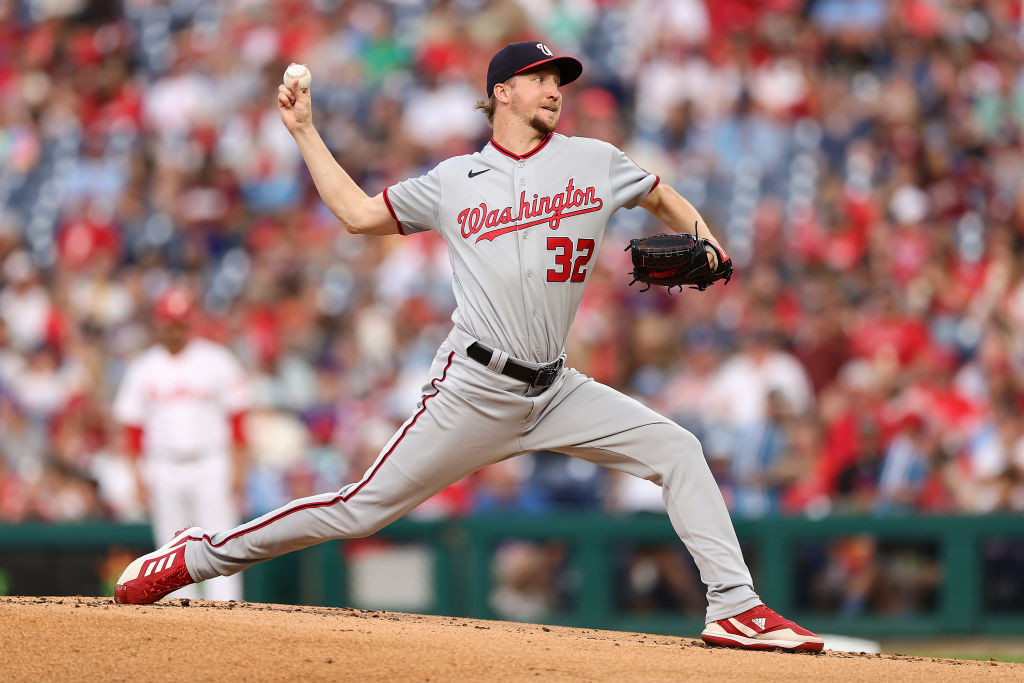It’s another deadline day in the baseball world. Earlier this week, it was the deadline to add players to the 40-man roster and protect them from being lost in the Rule 5 draft. Today it’s the deadline to tender contracts to all players who are eligible for salary arbitration.
What that means: Any player with at least three years but fewer than six years of big league service time – plus the “Super 2’s” who qualified before reaching the three-year mark – will learn today whether their clubs intend to make them contract offers for 2023 or part ways and leave them as free agents.
The most notable developments every year on this date don’t have to do with the players who are tendered contracts. It’s all about who doesn’t get a contract offer, who gets non-tendered.
And in the case of the Nationals, there are a couple of tough decisions to make.
The Nats have 10 arbitration-eligible players, but infielder Ildemaro Vargas already agreed to terms on a contract for 2023 earlier this week, so he’s not a part of this discussion. The decisions on six of the other players would appear to be easy ones. The team should tender contracts to Carl Edwards Jr., Victor Robles, Tanner Rainey, Hunter Harvey, Lane Thomas and Kyle Finnegan.
Less certain is the fate of Victor Arano, the 27-year-old reliever who had a 4.50 ERA and 1.405 WHIP in 43 appearances this season before landing on the injured list in early September with a shoulder strain. Arano is arbitration-eligible for the first time and would command a projected salary of about $1 million. Given how much depth the Nationals had in their bullpen at season’s end, they may not feel Arano is worth that much.
The two bigger decisions, though, involve two bigger names who held more prominent roles this year: Luke Voit and Erick Fedde.
Voit, of course, was the “other guy” in the Nationals’ blockbuster August trade with the Padres, the lone non-prospect acquired in the deal that sent Juan Soto and Josh Bell to San Diego. His performance after arriving in D.C. was erratic, and ultimately disappointing by his standards: nine homers, 21 RBIs, a .228/.295/.381 slash line in 53 games, plus some cringeworthy defense at first base.
Voit is entering his third of four arbitration-eligible seasons, having qualified as a Super-2 player following the 2020 season. He made $5.45 million this year, and MLB Trade Rumors projects his 2023 season at $8.2 million. Do the Nats want to invest that much in a player who doesn’t look like a part of their long-term plan, though he’s the only real proven source of power they’ve currently got on their roster?
There’s a good case to retain Voit, given the lack of other established bats in the Nationals lineup. The case for retaining Fedde isn’t as strong, though it’s far from a lock he’ll be non-tendered.
The 2014 first-round pick has never managed to live up to his potential. Over the course of 102 career big league appearances, 88 of them starts, the right-hander is 21-33 with a 5.41 ERA and 1.523 WHIP. And his numbers have progressively gotten worse the last three seasons as he’s been given more opportunities to pitch out of the rotation.
The Nationals certainly don’t look at Fedde as a long-term piece to the puzzle anymore. But neither do they have enough pitching depth in house at the moment to jettison the 29-year-old without a ready-made replacement to fill out their rotation. If they were certain MacKenzie Gore, Cade Cavalli and Josiah Gray were the real deal, if Patrick Corbin was going to finally pitch like the 2019 version of himself and if Stephen Strasburg could be counted on to make 20-plus starts in 2023, they’d have ample reason to non-tender Fedde.
But with so many question marks in the pitching department, they may feel compelled to stick with him and pay him the $3.6 million salary he’s projected to earn if he goes through the arbitration process.
One way or the other, we’ll know by the end of the day how the Nationals decided to proceed.
By accepting you will be accessing a service provided by a third-party external to https://www.masnsports.com/





